The Autobiography of Charles Darwin
by Frog_BarfThe autobiographical portion is quite short; most of the book (edited by Darwin's son Francis) is taken up by selections from Darwin's extensive correspondence.
Anyone interested in Darwin's seminal work on evolution, especially the immediate impact of Origin of Species at the time of its publication. could do much worse than to read the Autobiography. It's quite clear that Origin of Species caused a shit storm of abuse so intense, esp. from religious leaders, that one can't help but wonder if they viewed it as threatening their livelihoods.
There are three other principal characters in the drama: Charles Lyell, the great geologist; J
Unin4m8on
by vizionThe Uniformatarian philosophy of Sir Charles Lyell in geology and Sir Charles Darwin in biological evolution gave upper-class of Victorian England a secularized version of Judeo-Christian tradition. As an intellectual thesis Darwinism was dead by the end of the 20th century. The most advanced speculation was occurring in Germany where modern biology was born. Darwinism survived because its political associations. In the form of Social Darwinism it had a natural affinity with the Nationalism in. . .
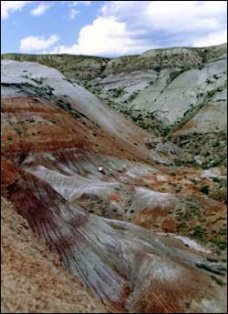
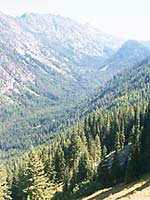 e eroded sediments form into layers of rock, which can later be lifted above sea level, tilted by the force of the uprising rock, and eroded away again. These changes are tiny, but with enough time they could produce vast changes. Hutton therefore argued that the Earth was vastly old a sort of perpetual-motion machine passing through regular cycles of destruction and rebuilding that made the planet suitable for mankind.
e eroded sediments form into layers of rock, which can later be lifted above sea level, tilted by the force of the uprising rock, and eroded away again. These changes are tiny, but with enough time they could produce vast changes. Hutton therefore argued that the Earth was vastly old a sort of perpetual-motion machine passing through regular cycles of destruction and rebuilding that made the planet suitable for mankind.

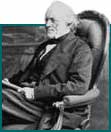 row through time.
row through time.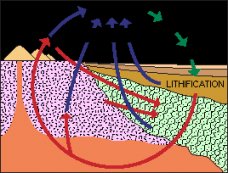 "Catastrophism, " as this school of thought came to be known, was attacked in 1830 by a British lawyer-turned-geologist named Charles Lyell (1797-1875). Lyell started his career studying under the catastrophist at Oxford. But Lyell became disenchanted with Buckland when Buckland tried to link catastrophism to the Bible, looking for evidence that the most recent catastrophe had actually been Noah's flood. Lyell wanted to find a way to make geology a true science of its own, built on observation and not susceptible to wild speculations or dependent on the supernatural.
"Catastrophism, " as this school of thought came to be known, was attacked in 1830 by a British lawyer-turned-geologist named Charles Lyell (1797-1875). Lyell started his career studying under the catastrophist at Oxford. But Lyell became disenchanted with Buckland when Buckland tried to link catastrophism to the Bible, looking for evidence that the most recent catastrophe had actually been Noah's flood. Lyell wanted to find a way to make geology a true science of its own, built on observation and not susceptible to wild speculations or dependent on the supernatural.







 The Barb (also called the English Barb) is a breed of fancy pigeon developed over many years of selective breeding. Barbs, along with other varieties of domesticated pigeons, are all descendants from the Rock Pigeon (Columba livia). This breed was referred to by...
The Barb (also called the English Barb) is a breed of fancy pigeon developed over many years of selective breeding. Barbs, along with other varieties of domesticated pigeons, are all descendants from the Rock Pigeon (Columba livia). This breed was referred to by...
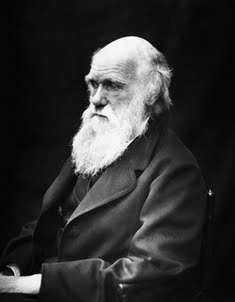 The life and work of Charles Darwin from the publication of Orchids to the publication of Variation during the years between 1860 and 1868 continued with Darwin carrying out his research and experimentation on evolution as he worked sporadically on the first section...
The life and work of Charles Darwin from the publication of Orchids to the publication of Variation during the years between 1860 and 1868 continued with Darwin carrying out his research and experimentation on evolution as he worked sporadically on the first section...